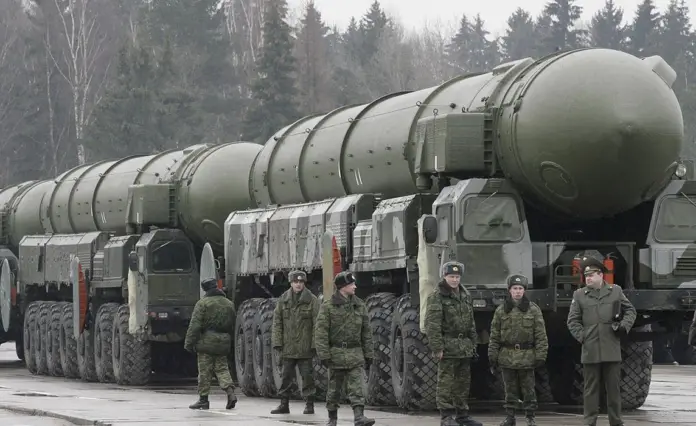Readers might feel insecure after reading the following statement of Secretary-General Antonio Guterres: “humanity is just one misunderstanding, one miscalculation away from nuclear annihilation.” The basis for his warning, which he made at the opening of a high-level meeting to review the landmark 50-year-old treaty aimed at preventing the spread of nuclear weapons, is the on-going war in Ukraine, nuclear threats in Asia and the Middle East as well as many other factors.
The tragic fact is that world leaders are very well aware of the dangers that a nuclear war can trigger, but still, they are not making any serious efforts for quitting the nuclear arms race or disposing of the most brutal technology that can wipe off humanity in a matter of seconds either through intentional attack or accidentally. Repeated warnings are falling on deaf ears and the world remains under threat.
The only campaign launched by states equipped with nuclear arms is that they are making all-out efforts to stop other countries from acquiring nuclear bomb technology. The campaign is spearheaded by the US along with its allies. The US issues warnings of dire consequences to states indulging in the adventure of boosting their nuclear technology but is not ready to dispose of its own stockpile of nuclear arms. Besides, Israel, which is a strong ally of the US, does not care for any international obligation against the proliferation of nuclear arms. Israel has not yet signed the nuclear Nonproliferation Treaty introduced in 1970. Due to these double standards, certain states never stop pursuing their ambition of acquiring nuclear technology at the cost of any sanctions. As per media reports, North Korea is preparing to conduct its seventh nuclear test, Iran “has either been unwilling or unable” to accept a deal to return to the 2015 nuclear agreement aimed at reining in its nuclear program, and Russia is “engaged in reckless, dangerous nuclear sabre-rattling” in Ukraine. India and Pakistan, which didn’t join the NPT, went on to get the bomb. So did North Korea. Therefore, potential conflicts do exist among various states that can escalate into a full-fledged nuclear clash at any time.
Presently, the world is facing a two-pronged threat of falling victim to destruction caused by nuclear warfare. First, certain states with nuclear capability pose a threat to world peace. Those states that fail to resolve their conflicts through dialogues never rule out the option of getting engaged in nuclear warfare anytime: that is the perceived fear. If that happens, it will be no less than mutually agreed destruction for both sides. Russia’s non-cooperative attitude and the US policy of maintaining its hegemony in the world are causes for concern. The US and Russia have a combined arsenal of 14,800 nuclear weapons, and there is an estimated total of 15,800 nuclear weapons in existence worldwide. We live in a dangerous world, and when this confusion is going to end nobody can ascertain.
The Middle East has become a troubled area where everybody is trying his might. While the Russian invasion of Ukraine and the latest developments are leading to a possible full-scale war. Both Russia and Ukraine are not willing to soften their stances and space for dialogue is getting shrunk. In this situation, nuclear warmongering and related assistance can bring perilous results for the whole world as the consequences and ill-effects of this escalation will not remain limited to Moscow and Washington. In the sub-continent, cold-war hostilities between Pakistan and India can result in a full-fledged nuclear war. It is also a fact that Iran is endangering peace in the Middle East by indulging in a nuclear arms race, which is not in the interests of Iran as well as the region.
In such a situation, the start of a nuclear war between the two countries remains a dreadful dream not only for the masses of relevant states but also for the rest of the world. Because a nuclear war can trigger an unprecedented human death toll and habitat destruction. Detonating such a large amount of nuclear weaponry would have a long-term effect on the world’s climate that may generate significant upheaval in advanced civilisations. Nobody is oblivious of the terrible consequences of using nuclear weapons. Therefore, these weapons should never be used in any case. All states should cooperate and follow nuclear agreements in letter and spirit for the sake of humanity and all conflicts need to be resolved on the table, not on the battlegrounds in this nuclear age. There is a need to build consensus for ending divisions in the world and getting rid of this most dangerous threat to humanity.







